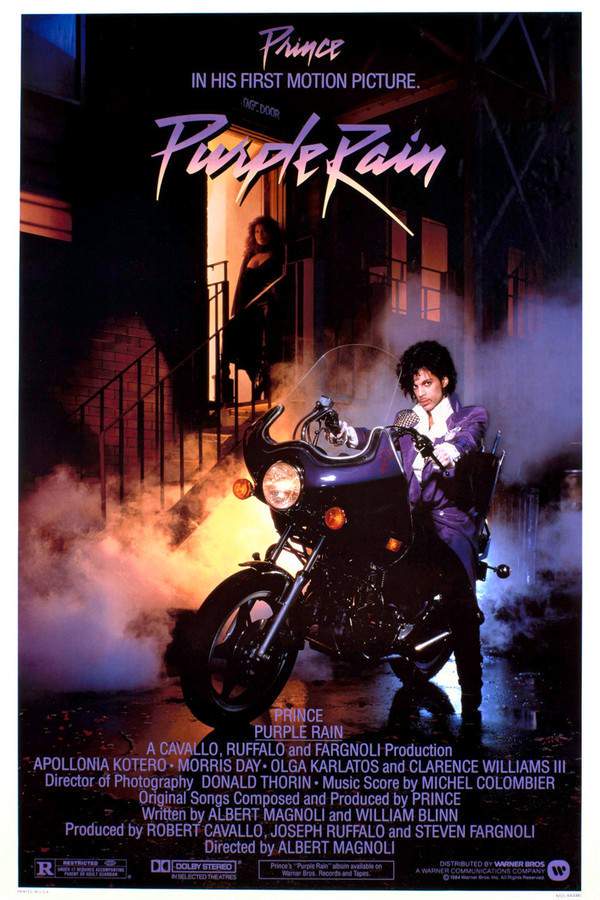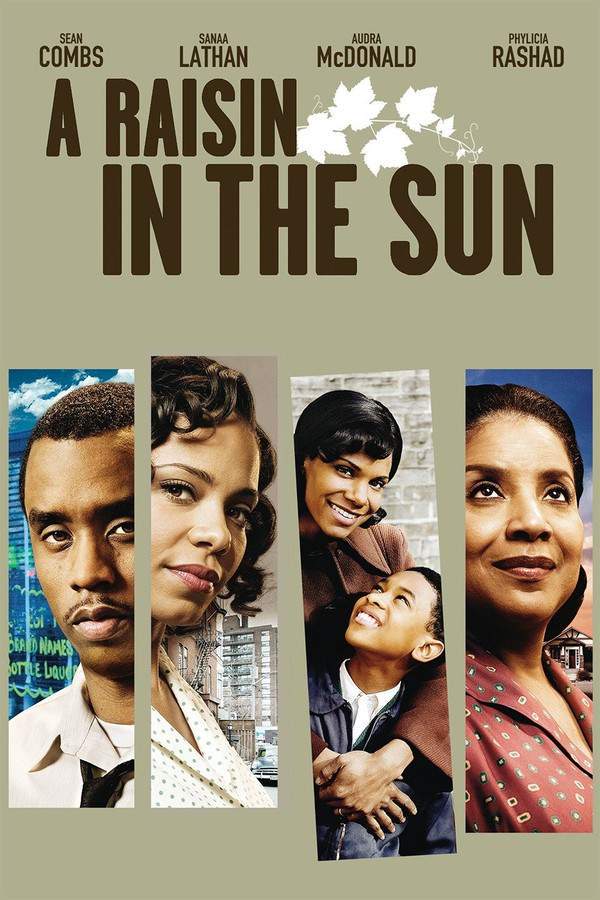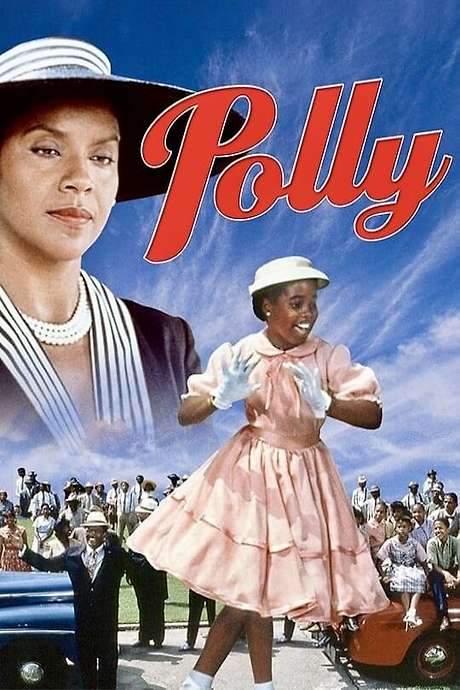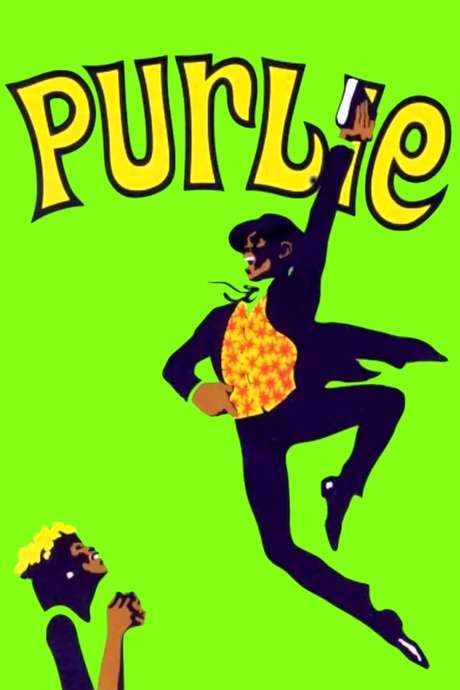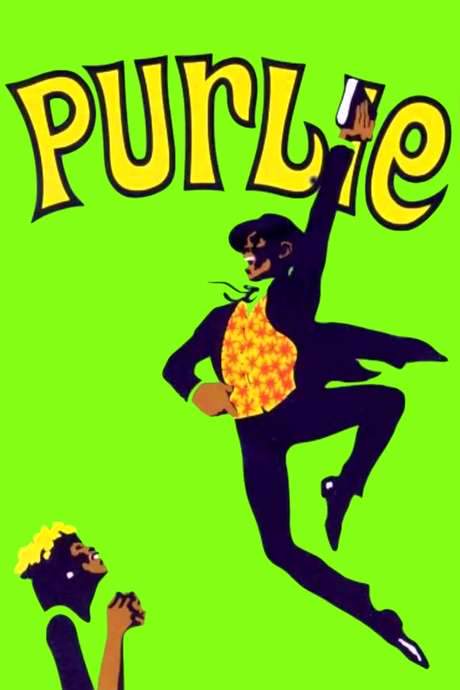The Color Purple 2023

This is a decades-spanning story of a woman's journey to independence, based on the novel and Broadway musical. Facing numerous hardships, Celie ultimately discovers extraordinary strength and hope through the unbreakable bonds of sisterhood.
Does The Color Purple have end credit scenes?
No!
The Color Purple does not have end credit scenes. You can leave when the credits roll.
Meet the Full Cast and Actors of The Color Purple
Explore the complete cast of The Color Purple, including both lead and supporting actors. Learn who plays each character, discover their past roles and achievements, and find out what makes this ensemble cast stand out in the world of film and television.

Halle Bailey
Young Nettie

David Alan Grier
Reverend Avery

Colman Domingo
Mister

Corey Hawkins
Harpo

Louis Gossett Jr.
Ol' Mister

Tamela J. Mann
First Lady

Taraji P. Henson
Shug Avery

Elizabeth Marvel
Miss Millie

Danielle Brooks
Sofia

Deon Cole
Alfonso

Stephen Hill
Henry (Buster) Broadnax

Ciara
Nettie

Jon Batiste
Grady

Aunjanue Ellis-Taylor
Mama

Fantasia Barrino
Celie

Phylicia Pearl Mpasi
Young Celie

H.E.R.
Squeak

Adetinpo Thomas
Mary Ellen

Tiffany Elle Burgess
Olivia

Terrence J. Smith
Adam
External Links and Streaming Options
Discover where to watch The Color Purple online, including streaming platforms, rental options, and official sources. Compare reviews, ratings, and in-depth movie information across sites like IMDb, TMDb, Wikipedia or Rotten Tomatoes.
Ratings and Reviews for The Color Purple
See how The Color Purple is rated across major platforms like IMDb, Metacritic, and TMDb. Compare audience scores and critic reviews to understand where The Color Purple stands among top-rated movies in its genre.

The Movie Echo Score
In overall terms, The Color Purple distinguishes itself through its commanding performances and rich audiovisual design while contending with narrative unevenness. Reviewers repeatedly cite Fantasia Barrino, Danielle Brooks, and Taraji P. Henson for their compelling portrayals, and note the film’s vivid production design and cinematography. However, the integration of musical numbers into the plot is sometimes perceived as disruptive, and pacing irregularities undercut engagement. These factors combine to deliver a film that is emotionally potent and visually striking, yet not entirely cohesive in its dramatic flow.
The Movie Echo Score Breakdown for The Color Purple

Art & Craft
Art and craft in The Color Purple are marked by vibrant cinematography and meticulous production design, yet occasionally constrained by its stage-bound origins. Critics highlight the inventive camera transitions into musical sequences and the immersive period detail, while also pointing to a lack of eccentric flair in some choreography. Overall, the visual effort is strong but somewhat conventional in execution.

Character & Emotion
When it comes to character depth and emotion, the film delivers consistently strong work from its leads. Most observers praise Fantasia Barrino, Danielle Brooks, and Taraji P. Henson for their nuanced performances and the palpable chemistry among the principal trio. While some supporting arcs receive less development, the central portrayals anchor the narrative with authentic feeling, providing a sustained emotional core.

Story & Flow
In terms of story and flow, reactions are mixed regarding narrative coherence and pacing. Several critics observe that musical interludes can act as narrative speed bumps, and some find the adaptation too faithful to earlier versions. Conversely, others appreciate the sentimental through-line and thematic resonance. Ultimately, the film offers memorable scenes but does not always maintain consistent momentum across its runtime.

Sensory Experience
Regarding sensory experience, the movie excels in musical staging, sound design, and visual style. Observers note the engaging score, dynamic choreography, and rich period atmosphere—from Spanish moss–draped oaks to evocative costumes. The musical numbers often generate heightened energy, though a few sequences are described as tonally jarring. Overall, the sensory elements are immersive and contribute significantly to the film’s impact.

Rewatch Factor
On the question of rewatch value, the film’s standout performances and striking production design encourage repeat viewings. Many note that the emotional highs and visual flourishes can resonate on subsequent watches. However, uneven pacing and structural disruptions by certain musical numbers may diminish the impulse to revisit the entire work. As a result, the film offers selective replay appeal rather than uniform replayability.

72
Metascore
6.9
User Score


81%
TOMATOMETER

95%
User Score

6.8 /10
IMDb Rating

70
%
User Score

3.6
From 281 fan ratings

5.00/5
From 2 fan ratings
Take the Ultimate The Color Purple Movie Quiz
Challenge your knowledge of The Color Purple with this fun and interactive movie quiz. Test yourself on key plot points, iconic characters, hidden details, and memorable moments to see how well you really know the film.
The Color Purple Quiz: Test your knowledge about the themes, characters, and events of The Color Purple (2023).
What is the relationship between Celie and Nettie?
Friends
Cousins
Sisters
Neighbors
Show hint
Awards & Nominations for The Color Purple
Discover all the awards and nominations received by The Color Purple, from Oscars to film festival honors. Learn how The Color Purple and its cast and crew have been recognized by critics and the industry alike.
77th British Academy Film Awards 2024

29th Critics' Choice Awards 2024
Best Picture

Best Acting Ensemble
Best Costume Design
Best Hair and Makeup
30th Annual Screen Actors Guild Awards 2024







Outstanding Performance by a Cast in a Motion Picture
39th Artios Awards 2024
Feature Big Budget – Drama
81st Golden Globe Awards 2024

Full Plot Summary and Ending Explained for The Color Purple
Read the complete plot summary of The Color Purple, including all major events, twists, and the full ending explained in detail. Explore key characters, themes, hidden meanings, and everything you need to understand the story from beginning to end.
In the scorching heat of 1909 Georgia, two sisters, Celie (Phylicia Pearl Mpasi) and Nettie (Halle Bailey), cherish playful moments during a carefree afternoon, engaging in clapping games while the somber ambiance of their small town’s Sunday church service looms nearby. However, this brief joy is shadowed by dire realities. Celie, who is expecting her second child from her abusive father Alfonso (Deon Cole), faces the heartbreaking truth that he will take her newborn away, as he did with her first daughter, Olivia (Tiffany Elle Burgess). While working in a local shop, Celie’s heart aches as she spies the woman caring for her daughter, a constant reminder of lost opportunities and unfulfilled dreams.
As the sisters endure their struggles together, they find solace in each other’s companionship, a sentiment echoed in their mantra to “Keep It Movin’.” Yet, their bond is tested when Nettie becomes the object of affection for Albert “Mister” Johnson (Colman Domingo), who is determined to marry her. Despite Alfonso’s initial hesitation, he ultimately forces Celie into a marriage that plunges her deeper into a life filled with despair and servitude.
In her domineering new home, Celie is subjected to a grueling existence as Mister’s servant and caretaker for his sons, often facing brutal punishment for any perceived disobedience. Meanwhile, Nettie yearns for freedom and returns to Celie when their father’s tyranny becomes unbearable. At first, she is dismissed by Mister, who disregards her ambitions for education and independence. However, the sisters’ indomitable connection proves resilient, enabling them to endure even the harshest tribulations.
As shadows loom ever larger in their lives, Nettie must flee from Mister after he attempts to assault her, intensifying the need for self-defense. Choosing survival over safety, she must abandon Celie but promises to stay in touch, continually affirming the strength of their sibling bond even amidst separation and adversity.
The story shifts to 1917, where Fantasia Barrino reprises her powerful role as Celie, still trapped under Mister’s thumb but deeply involved in the chaotic romance between Harpo (Corey Hawkins) and Sofia (Danielle Brooks), who stands her ground with fiery tenacity against her husband. As Celie grows closer to Sofia, who reveals her difficulties with Harpo’s impotence to assert himself, it becomes clear that marital dynamics are intriguingly complex.
As time passes, a juke joint that Harpo builds becomes a stage for the arrival of the spirited Shug Avery (Taraji P. Henson), whose dramatic reappearance rattles the lives of everyone around her. As Celie cares for Shug, the two women develop an unexpected camaraderie that helps Celie find her voice against Mister’s oppression. This newfound friendship flourishes amidst an impending crescendo as Shug prepares to embark on a journey of self-discovery, leaving Celie yearning for stability in an unstable world.
As fate continuously weaves its intricate web through their lives, Celie’s happiness is disrupted once again when she receives a letter from her long-lost sister, filled with revelations of Nettie’s newfound life and resolve in Africa. Nettie has taken Celie’s children and integrated them into a local tribe’s community, showcasing the deeply interwoven lives they lead.
In a shocking turn of events, the narrative weaves in more turmoil when Sofia is jailed after a confrontation with the mayor’s wife, leading to six years of incarceration. As Easter Sunday unfolds, with reunions and family tensions climaxing around the dinner table hosted by Mister, Celie’s suppressed frustrations explode, leading to a confrontation that finally liberates her from the chains of her old life. In a decisive act of defiance, she declares her intent to leave Mister and create a future without the torment she has endured.
As Celie rekindles her existence with Shug in Memphis, she channels her creativity through writing and rekindling bonds with her family while establishing a thriving pants shop supported by newfound friendships. As the chapters of her life unfold, she discovers both the joys and the heartaches that accompany personal growth and healing.
As she sings triumphantly, “I’m Here,” her path converges with the celebration of independence and love, culminating in a breathtaking Fourth of July where her long-lost sister Nettie (Ciara) returns, along with her children, celebrating a reunion steeped in the gratitude and understanding of life’s journey through “The Color Purple.”
Uncover the Details: Timeline, Characters, Themes, and Beyond!

Coming soon on iOS and Android
The Plot Explained Mobile App
From blockbusters to hidden gems — dive into movie stories anytime, anywhere. Save your favorites, discover plots faster, and never miss a twist again.
Sign up to be the first to know when we launch. Your email stays private — always.
Watch Trailers, Clips & Behind-the-Scenes for The Color Purple
Watch official trailers, exclusive clips, cast interviews, and behind-the-scenes footage from The Color Purple. Dive deeper into the making of the film, its standout moments, and key production insights.
The Color Purple Themes and Keywords
Discover the central themes, ideas, and keywords that define the movie’s story, tone, and message. Analyze the film’s deeper meanings, genre influences, and recurring concepts.
The Color Purple Other Names and Titles
Explore the various alternative titles, translations, and other names used for The Color Purple across different regions and languages. Understand how the film is marketed and recognized worldwide.
Similar Movies To The Color Purple You Should Know About
Browse a curated list of movies similar in genre, tone, characters, or story structure. Discover new titles like the one you're watching, perfect for fans of related plots, vibes, or cinematic styles.
Quick Links: Summary, Cast, Ratings, More

What's After the Movie?
Not sure whether to stay after the credits? Find out!
Explore Our Movie Platform
New Movie Releases (2026)
Famous Movie Actors
Top Film Production Studios
Movie Plot Summaries & Endings
Major Movie Awards & Winners
Best Concert Films & Music Documentaries
Movie Collections and Curated Lists
© 2026 What's After the Movie. All rights reserved.

















